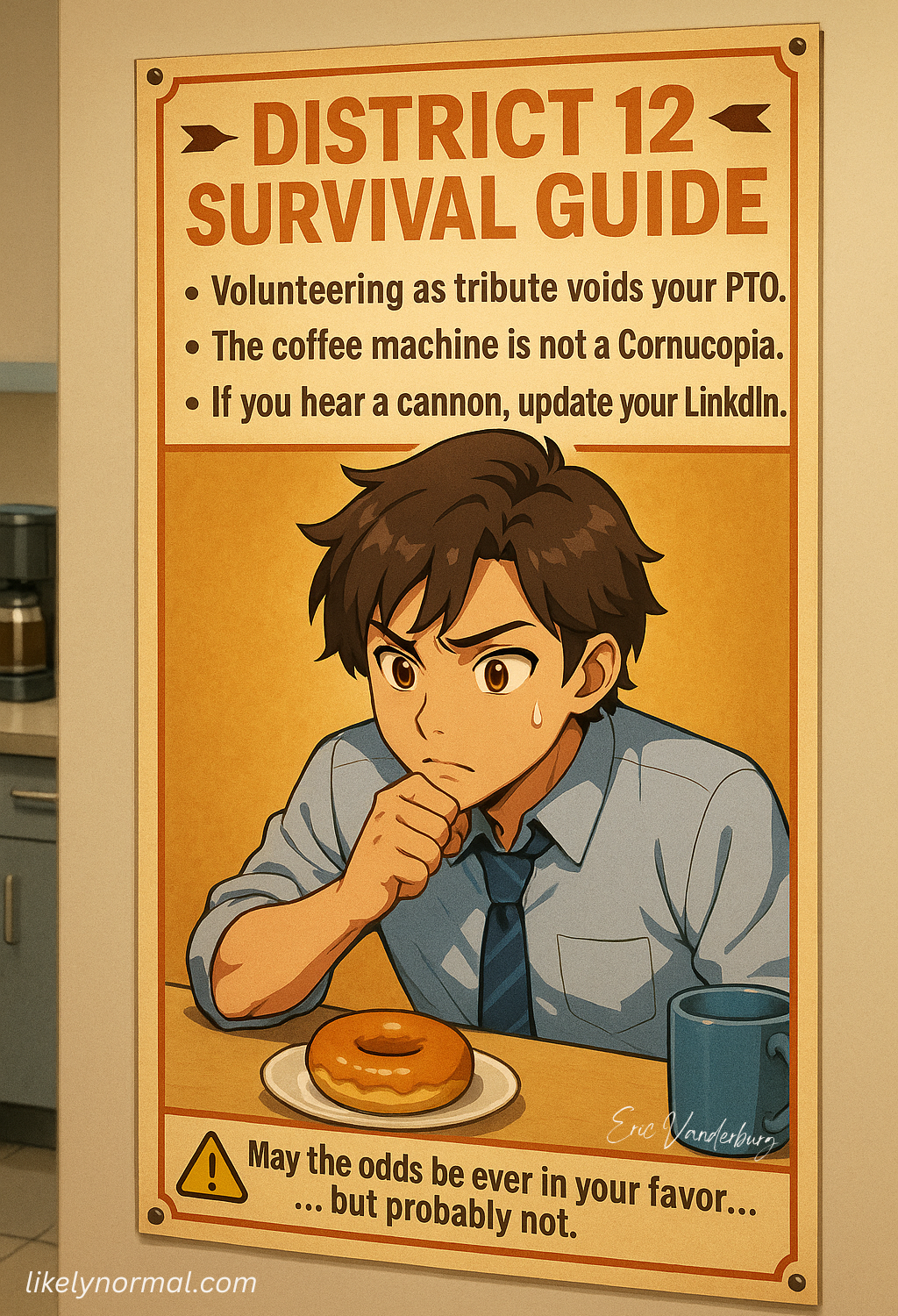District 12 Survival Guide
In the grand tradition of dystopian fiction, The Hunger Games stands out as the most brutal teen pageant ever conceived—a glittery, murderous spectacle where the prize is survival and the audience is a bunch of Capitol citizens who apparently think child combat is the pinnacle of entertainment. The whole thing operates like a deranged mix of American Idol and Battle Royale, complete with stylists who believe setting teenagers on fire counts as fashion and a host who delivers death announcements with the enthusiasm of a game show presenter. From the moment Katniss Everdeen volunteers as tribute to save her sister (thus cementing herself as the most reluctant revolutionary in history), we’re treated to a masterclass in how not to run a society.
The Games themselves are a logistical nightmare disguised as a sporting event. Twenty-four kids are dumped into an arena rigged with more traps than a Saw movie, and instead of, say, forming an alliance to overthrow the system, they immediately turn on each other in a bloodbath that makes the first five minutes look like a Lord of the Flies speedrun. Katniss, our perpetually unimpressed heroine, navigates this nightmare with a combination of survival skills, sheer spite, and a truly baffling love triangle with Peeta (the baker-turned-reluctant-killer) and Gale (who’s mostly just angry in the background). Meanwhile, the Capitol’s elite watch from their couches, munching on food that changes color and wearing outfits made of things that should not be clothing—feathers, jewels, and in one memorable case, actual light bulbs.
President Snow, the franchise’s resident villain, slithers through the series smelling like roses and delivering threats with the calm demeanor of a man who’s never had to fight for a Wi-Fi signal. His entire regime is built on the shaky premise that the best way to prevent rebellion is to annually murder children on live TV, which—spoiler—backfires spectacularly when Katniss turns her fake romance with Peeta into a rallying cry for revolution. By the time Mockingjay rolls around, the Games have been replaced with full-blown war, and the only thing more dangerous than the Capitol’s death squads is Peeta’s post-brainwashing mental state (“Remember when I loved you? Now I want to strangle you. Happy Hunger Games!”).
In the end, The Hunger Games teaches us valuable life lessons: never trust a government that spends more on costumes than healthcare, always pack a bow and arrow if you’re going to a political rally, and if a guy shows up smelling like a flower shop, run. It’s a story about survival, sacrifice, and the enduring truth that no matter how bad things get, at least you’re not the tribute who got stung to death by mutant wasps. May the odds—and your sense of humor—be ever in your favor.

Discussion ¬